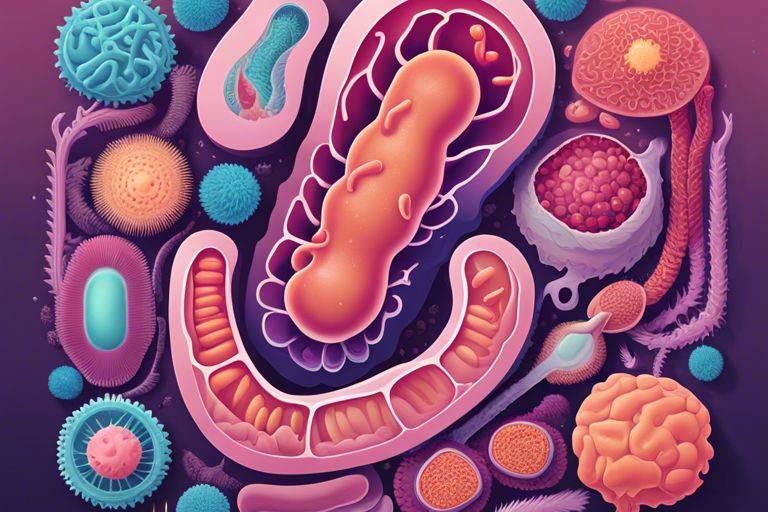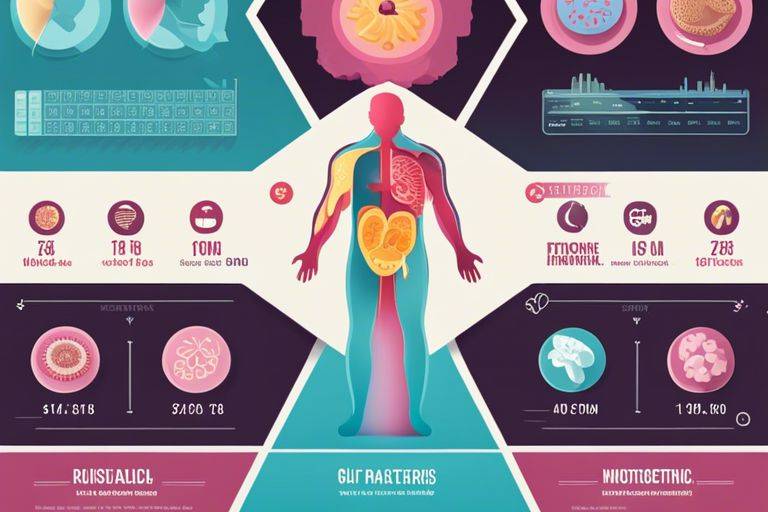With trillions of bacteria residing in your gut, the world inside you is as vast and intricate as the cosmos above. From aiding in digestion to influencing your mood, these microscopic organisms have a profound impact on your overall health. Join me on a journey to explore the fascinating realm of the gut microbiome and discover how the NIH Human Microbiome Project defines normal bacterial makeup in the body.
NIH Human Microbiome Project defines normal bacterial …
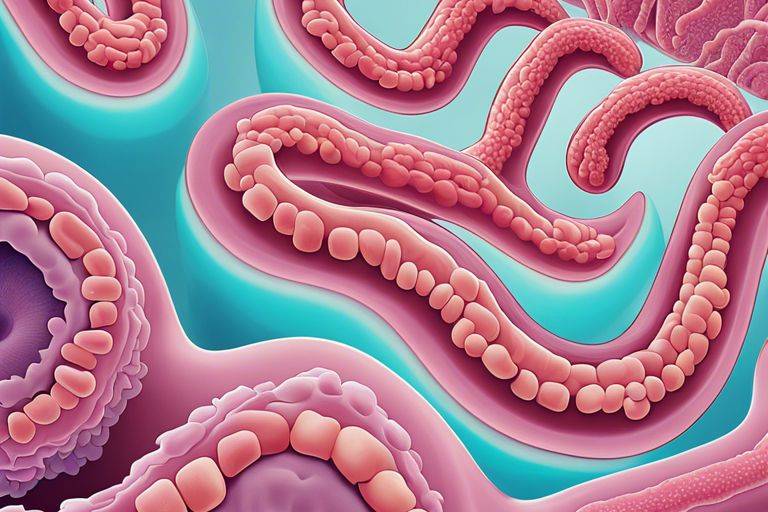
Key Takeaways:
- Gut Microbiome: The gut is home to trillions of bacteria that make up the gut microbiome, which plays a crucial role in overall health.
- Role of Bacteria: Tiny bacteria in the gut help with digestion, regulate the immune system, and even produce vital vitamins.
- Impact on Health: Imbalance in gut bacteria has been linked to various health issues such as obesity, autoimmune diseases, and mental health disorders.
- Diet and Gut Health: A diet rich in fiber and plant-based foods can promote a diverse and healthy gut microbiome.
- Probiotics and Prebiotics: Consuming probiotics and prebiotics can help maintain a healthy balance of gut bacteria.
- Antibiotics and Gut Microbiome: Antibiotics can disrupt the gut microbiome, leading to potential health complications.
- Future Research: Ongoing research is exploring the role of the gut microbiome in various diseases and the potential for personalized treatments based on individual microbiome profiles.
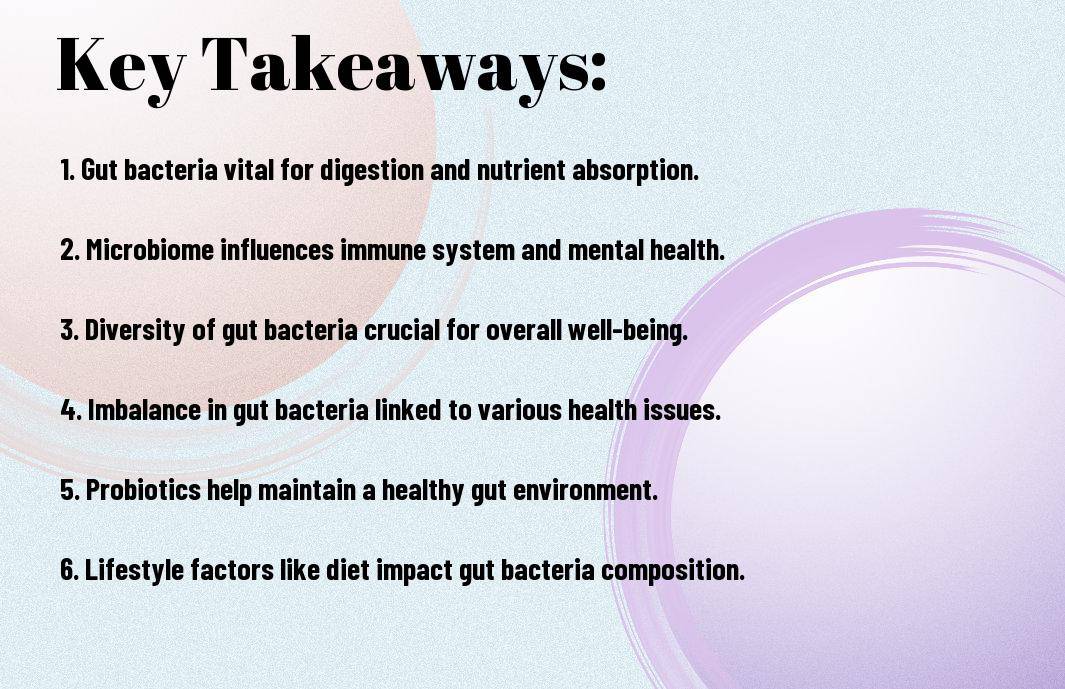
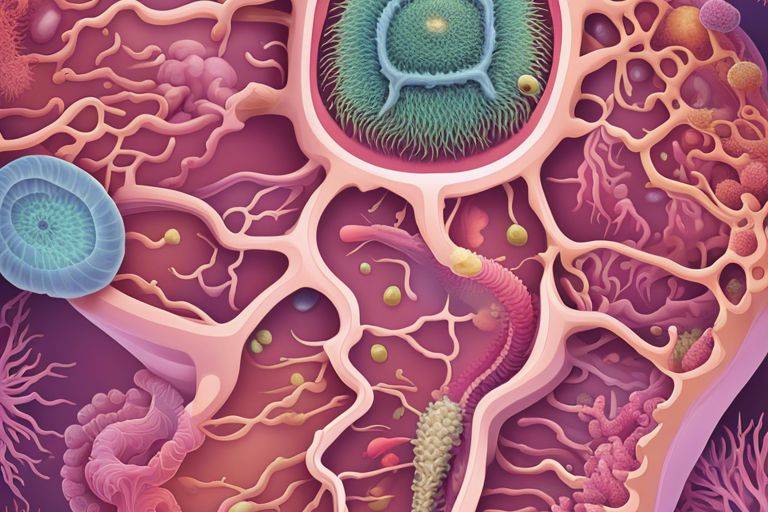
The Gut Microcosm
A World Within
While we go about our daily lives, trillions of tiny bacteria thrive in our gut, forming a complex ecosystem that is crucial for our health.
The Gut as an Ecosystem
On a microscopic level, the gut functions as an intricate ecosystem where various bacteria coexist and interact with each other. These bacteria, collectively known as the gut microbiota, play a vital role in digestion, immunity, and even mood regulation.
One fascinating aspect of the gut microbiota is its diversity. Having a diverse range of bacterial species is crucial for maintaining a healthy gut. Certain species can help break down nutrients, while others protect against harmful pathogens.
The Players: Gut Bacteria
Diversity of Microbes
One fascinating aspect of the gut microbiome is the diversity of microbes that call our intestines home. To think that trillions of these tiny organisms work in harmony to support our health is truly awe-inspiring. Your gut is like a bustling metropolis, with different species of bacteria collaborating and coexisting to maintain a delicate balance.
Key Players: Probiotics and Pathobionts
On the stage of your gut, there are key players that significantly impact your health: probiotics and pathobionts. Probiotics, like Lactobacillus and Bifidobacterium, are the friendly bacteria that support your digestion and immune system. Alternatively, pathobionts, such as Clostridium difficile, can turn harmful under certain conditions and cause infections. It’s vital to nurture the good and manage the bad for a harmonious gut ecosystem.
Bacteria in your gut play a pivotal role in not just digestion, but also in regulating your immune system and even affecting your mood. Beneficial bacteria help break down food, produce important vitamins, and maintain a healthy gut lining. Conversely, harmful bacteria can lead to inflammation, digestive issues, and even contribute to conditions like obesity and depression. By supporting the growth of beneficial bacteria through a balanced diet and healthy lifestyle, you can promote overall well-being.
The Role of Gut Bacteria
Digestion and Nutrient Absorption
Keep digestion efficient, gut bacteria break down food particles that our body’s enzymes cannot. This process aids in the absorption of nutrients such as vitamins, minerals, and important fatty acids in the small intestine. Your gut bacteria play a crucial role in extracting energy from food.
Immune System Regulation
For immune system regulation, gut bacteria interact with the cells in the intestinal lining, training the immune system to distinguish between harmful pathogens and beneficial microbes. Having a diverse gut microbiota can help prevent autoimmune diseases and keep your immune defenses in check.
Absorption
Production of Vitamins and Hormones
Vitamins produced by gut bacteria include Vitamin K and some B vitamins. These vitamins play important roles in blood clotting, bone health, and energy metabolism. Your gut bacteria also produce hormones that regulate appetite, mood, and overall well-being.
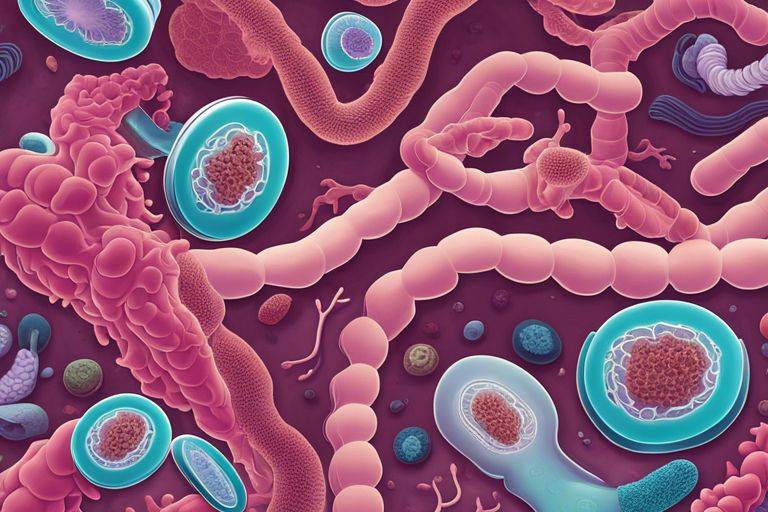
The Impact of Gut Bacteria on Health
For Gut Microbiome Communication: The Gut-Organ Axis, the influence of gut bacteria on health is profound. This tiny ecosystem of microbes can impact various aspects of our well-being, from mental health to inflammatory responses and even autoimmune disorders.
Gut-Brain Axis and Mental Health
Impact: Gut bacteria play a crucial role in the communication between the gut and the brain, known as the gut-brain axis. They can affect your mood, stress levels, and even cognitive function. Maintaining a healthy balance of gut bacteria is imperative for overall mental well-being.
Inflammatory Responses and Disease
Disease: The gut microbiome has a significant impact on inflammatory responses in the body. Imbalances in gut bacteria can lead to chronic inflammation, which is linked to various diseases such as obesity, diabetes, and even cancer.
For instance, an overgrowth of harmful bacteria in the gut can trigger an inflammatory response that contributes to the development of these serious health conditions. By promoting a diverse and balanced gut microbiome, you can help prevent the onset of inflammatory-related diseases.
The Link to Autoimmune Disorders
For: Gut bacteria also have implications for autoimmune disorders, where the immune system mistakenly attacks the body’s own tissues. Imbalances in the gut microbiome can trigger an inappropriate immune response, leading to conditions like rheumatoid arthritis, multiple sclerosis, and inflammatory bowel disease.
Disorders: Maintaining a healthy gut flora is imperative in preventing autoimmune disorders, as the delicate balance of bacteria in your gut can influence immune responses that may either protect against or trigger autoimmune conditions. By nurturing a diverse and beneficial gut microbiome, you can positively impact your overall health and reduce the risk of autoimmune disorders.
The Delicate Balance
Factors Affecting Gut Bacteria
Your gut microbiome’s health depends on various factors. Diet, antibiotic usage, stress levels, and environmental factors all play a role in shaping the composition of your gut bacteria. This delicate balance can be influenced by the food you eat and the lifestyle you lead.
Disruptions to the Balance: Dysbiosis
Affecting the balance of gut bacteria can lead to dysbiosis, where harmful bacteria overpower the beneficial ones. For instance, overuse of antibiotics can kill off good bacteria along with the bad, disrupting the balance. This imbalance can result in digestive issues, weakened immunity, and increased susceptibility to infections.
Maintaining a Healthy Gut Microcosm
Dietary Influences: Prebiotics and Fiber
After nurturing your gut with a variety of colorful fruits, vegetables, whole grains, and legumes, you can positively impact the balance of your gut bacteria. Prebiotics, such as garlic, onions, and bananas, act as food for beneficial bacteria, helping them thrive and outcompete harmful strains.
Lifestyle Choices: Stress Management and Sleep
To promote a healthy gut microcosm, managing stress and prioritizing quality sleep are crucial. Stress can disrupt the balance of gut flora, leading to inflammation and digestive disturbances. Adequate sleep allows your body to repair and restore its natural equilibrium.
Microcosm: Incorporating stress-reducing practices like meditation, yoga, or spending time in nature can positively impact your gut health by lowering inflammation levels and promoting a more diverse microbiome.
Probiotic Supplements and Fermented Foods
Dietary supplements and fermented foods like yogurt, kefir, kimchi, and sauerkraut introduce beneficial bacteria into your gut, aiding in digestion and supporting a healthy gut ecosystem.
Sleep: Ensuring you consume a variety of probiotic-rich foods and supplements can bolster the population of beneficial bacteria in your gut, leading to improved digestion, nutrient absorption, and immune function.
Stress: Imbalances in gut bacteria due to chronic stress can weaken your immune system, increase inflammation, and raise the risk of various gastrointestinal disorders. Taking steps to reduce stress can help maintain a healthy gut microcosm.
Summing up
Conclusively, as we probe into the intricate world of the gut microbiome, we discover a vast and complex ecosystem thriving within us. Just like the cosmos above, these tiny bacteria wield immense influence over our health and well-being. As Carl Sagan once said, “The cosmos is within us. We are made of star-stuff.” In a similar vein, our bodies are home to a microcosmos that plays a significant role in shaping our existence.
FAQ
Q: What is the role of bacteria in the gut?
A: Bacteria in the gut play a vital role in digestion, immune function, and overall health.
Q: How do bacteria in the gut affect digestion?
A: Gut bacteria help break down food, produce vital nutrients, and contribute to the absorption of vitamins and minerals.
Q: Can gut bacteria influence our immune system?
A: Yes, gut bacteria play a significant role in regulating the immune system and protecting against harmful pathogens.
Q: How do gut bacteria communicate with the brain?
A: Gut bacteria can communicate with the brain through the gut-brain axis, influencing mood, behavior, and cognition.
Q: What factors can disrupt the balance of gut bacteria?
A: Factors such as diet, antibiotics, stress, and illness can disrupt the balance of gut bacteria, leading to digestive issues and other health problems.
Q: How can we maintain a healthy balance of gut bacteria?
A: Consuming a diverse range of fruits, vegetables, whole grains, and fermented foods can help maintain a healthy balance of gut bacteria.
Q: Are probiotics and prebiotics beneficial for gut health?
A: Yes, probiotics (beneficial bacteria) and prebiotics (fiber that feeds good bacteria) can help support a healthy gut microbiome and overall well-being.
